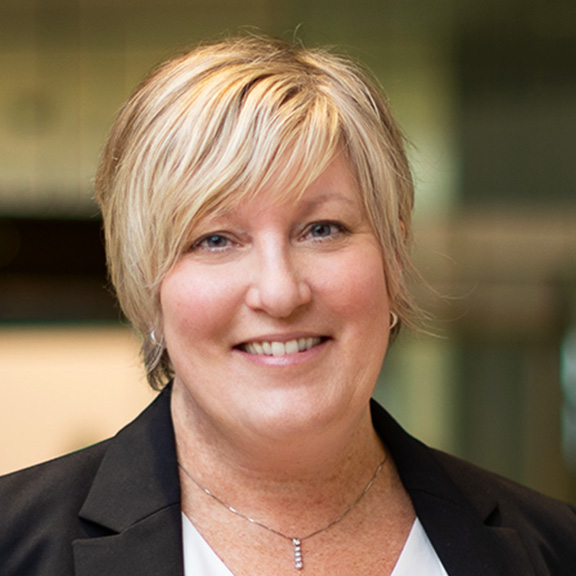A professional’s Charter right to freedom of expression falls short against his professional obligations in protecting him from undergoing mandatory training to remediate his public statements
October 20, 2023
Ontario Superior Court of Justice finds College Committee appropriately balanced Dr. Peterson’s Charter right to freedom of expression and his professional obligations as a regulated member of the College of Psychologists of Ontario in its decision to order Dr. Peterson to engage in remedial activity following him making public statements that may be degrading, demeaning and unprofessional.
Administrative law – Decisions reviewed – College of Psychologists – Charter of Rights and Freedoms – Judicial review – Legislative compliance – Standard of review – Unreasonableness – Public interest – Psychologists – Training requirements – Professional misconduct/conduct unbecoming
Peterson v. College of Psychologists of Ontario, [2023] O.J. No. 3761, 2023 ONSC 4685, Ontario Superior Court of Justice, August 23, 2023, N.L. Backhouse, P.B. Schabas and J. Krawchenko JJ.
The applicant, Dr. Jordan Peterson, sought judicial review of a Decision of the Inquiries, Complaints and Reports Committee (“ICRC”) of the College of Psychologists of Ontario (the “College”) which ordered him to complete a coaching program regarding professionalism in public statements following an investigation into public statements he had made that may be degrading, demeaning and unprofessional.
The statements complained about were made on social media (i.e., tweets) and in public appearances (such as on the podcast, “The Joe Rogan Experience”) and often involved Dr. Peterson’s views on topics of social and political interest, including transgender questions, racism, overpopulation, and the response to COVID-19, among others.
Dr. Peterson raised two issues on judicial review: (1) that the ICRC failed to conduct an appropriate proportionately-focused balancing of his right to freedom of expression and the statutory objectives of the College as required by the decision of the Supreme Court in Doré; and (2) that the Decision failed to meet the standard of “justification, transparency and intelligibility” required by the Supreme Court’s decision in Vavilov and was unreasonable having regard to the facts and the legal rights at stake.
The Court explained that the Doré framework is concerned with ensuring Charter protections are upheld to the fullest extent possible given the statutory objective within a particular administrative context. A decision-maker must first consider the statutory objectives it is seeking to uphold, and then, secondly, “ask how the Charter value at issue will best be protected in view of the statutory objectives.” This requires conducting a proportionality exercise, balancing “the severity of the interference of the Charter protection with the statutory objectives.” However, decision-makers are entitled to a measure of deference, and their decisions need only fall within a range of possible, acceptable outcomes.
The Court found that the ICRC’s:
a) concerns related to the public interest in members of the College avoiding the use of demeaning or degrading language, and a regulator’s interpretation of the public interest, based on its expertise;
b) assessment of whether a member’s conduct was relevant to their suitability to practice; and
c) assessment of the risk of harm to the public and the profession,
are each owed deference.
The Court concluded that the ICRC conducted an appropriate, proportionately focused balancing of Dr. Peterson’s right to freedom of expression and the statutory objectives of the College. Consistent with Doré, the ICRC, first, considered the College’s statutory mandate to regulate the practice of psychology in the public interest, referring to relevant sections of the Canadian Code of Ethics for Psychologists (the “Code”). The ICRC considered that Dr. Peterson’s public statements, contrary to the Code, appeared degrading, demeaning and unprofessional. The ICRC observed that those public statements could undermine public trust in the profession and the College’s ability to regulate it, raise questions about Dr. Peterson’s competence, and cause harm to the people they are directed at and more broadly. It then considered how to balance the statutory objectives in order to minimise any impact on Dr. Peterson’s Charter rights.
The Court rejected Dr. Peterson’s argument that his statements were not made in his capacity as a clinical psychologist, but were “off-duty opinions.” First, these were not personal comments made in conversation with friends or colleagues, they were public statements to broad audiences. Second, Dr. Peterson identified himself on Twitter and “The Joe Rogan Experience” as a “clinical psychologist”.
The Court held that the fact that the Decision did not provide a detailed discussion of the value of freedom of expression does not mean the ICRC did not appropriately consider it. Furthermore, the ICRC should not be expected to provide such detailed discussion, as the ICRC is, essentially, a screening body, performing a remedial, not disciplinary function.
The Court found that the ICRC had, effectively, three options in dealing with Dr. Peterson’s case: send the matter to discipline, do nothing, or direct a remedial program. By directing a remedial program, the ICRC proportionately balanced the competing interests, protecting the public interest in professionalism in communications by members and prevention of harm, while minimally impairing Dr. Peterson’s right to freedom of expression. The Court noted that the ICRC Decision does not prevent Dr. Peterson from expressing himself on issues of interest to him, rather it is focused on concerns over his use of degrading or demeaning language, about which he had even already been warned against in 2020.
Finally, the court concluded that the Decision met Vavilov’s requirement of justification, intelligibility and transparency. The ICRC considered its mandate and engaged in a clear chain of analysis that involved reviewing the factual background, its concerns with the language used by Dr. Peterson, and his responses. The court found it was not necessary to engage in whether Dr. Peterson’s comments were supported by facts or were his honest opinion, as the concern arises from the nature of the language used, not the validity of his opinions. On its face, the language raised professionalism concerns, and it was not necessary for the ICRC to engage with Dr. Peterson on his motivation for making those comments.
As a result, the Court dismissed Dr. Peterson’s application.
This case was digested by Renee Gagnon, and first published in the LexisNexis® Harper Grey Administrative Law Netletter and the Harper Grey Administrative Law Newsletter. If you would like to discuss this case further, please contact Renee Gagnon at [email protected].
To stay current with the new case law and emerging legal issues in this area, subscribe here.
Important Notice: The information contained in this Article is intended for general information purposes only and does not create a lawyer-client relationship. It is not intended as legal advice from Harper Grey LLP or the individual author(s), nor intended as a substitute for legal advice on any specific subject matter. Detailed legal counsel should be sought prior to undertaking any legal matter. The information contained in this Article is current to the last update and may change. Last Update: October 20, 2023.
Related
Subscribe



























